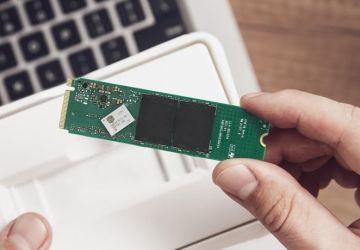The MLC SSD Alternative: SSSTC’s pSLC SSD
Industry Update
MLC NAND, known for its high stability, has been widely used in industrial equipment and IoT applications. However, the recent decline in MLC NAND production is creating uncertainty for industrial systems that rely on long lifecycle components and high endurance storage solutions.
What is pSLC (pseudo-Single Level Cell)?
pSLC is a technology that converts TLC NAND flash memory (3-bits per cell) or MLC NAND flash memory (2-bits per cell) to SLClike cells (1-bit per cell).In pSLC mode, each cell stores only 1 bit of data, resulting in behavior similar to true SLC, with comparable read/write performance and endurance. While this approach reduces storage capacity, it offers a cost-effective compromise between endurance and cost—making it ideal for high-endurance applications such as embedded systems and industrial equipment.

Learn More>> A Guide to NAND Flash Memory: Comparing SLC, MLC, TLC, and QLC
Why pSLC is the Ideal Alternative for MLC?
In the era of mature 3D NAND Flash technology, TLC offers several key advantages over MLC:
- Lower cost per GB
- Broader supply chain availability
- Greater potential for technology and generational upgrades
As a result, when evaluating pSLC in terms of availability and cost-performance ratio, pSLC based on TLC NAND Flash is often the more suitable choice.

pSLC SSDs can achieve much higher write speeds compared to their native MLC or TLC counterparts.

By reducing the amount of data written per cell, flash wear is minimized, resulting in longer lifespan and higher endurance.

Up to 30k P/E cycles. Customization options are also available to meet a wide range of industrial-grade requirements.
pSLC PCIe SSD
pSLC SATA SSD
-
SSSTC SATA SSD
Widely used in rugged computers, laptops, servers, edge servers, video surveillance systems, and enterprise-level storage solutions, they offer stable and dependable data storage. -
SSSTC NVMe™ SSD
With high-speed transfer and low latency, it's used in data centers, cloud services, big data, gaming, and graphics, enhancing system performance and speed.


__24C05D67dI.webp)




__24C15hqqtC.png)
__24C15wOdCC.png)









__24C05XQ2my.jpg)






__24C05fplcZ.png)
__24C05vgHYC.png)


